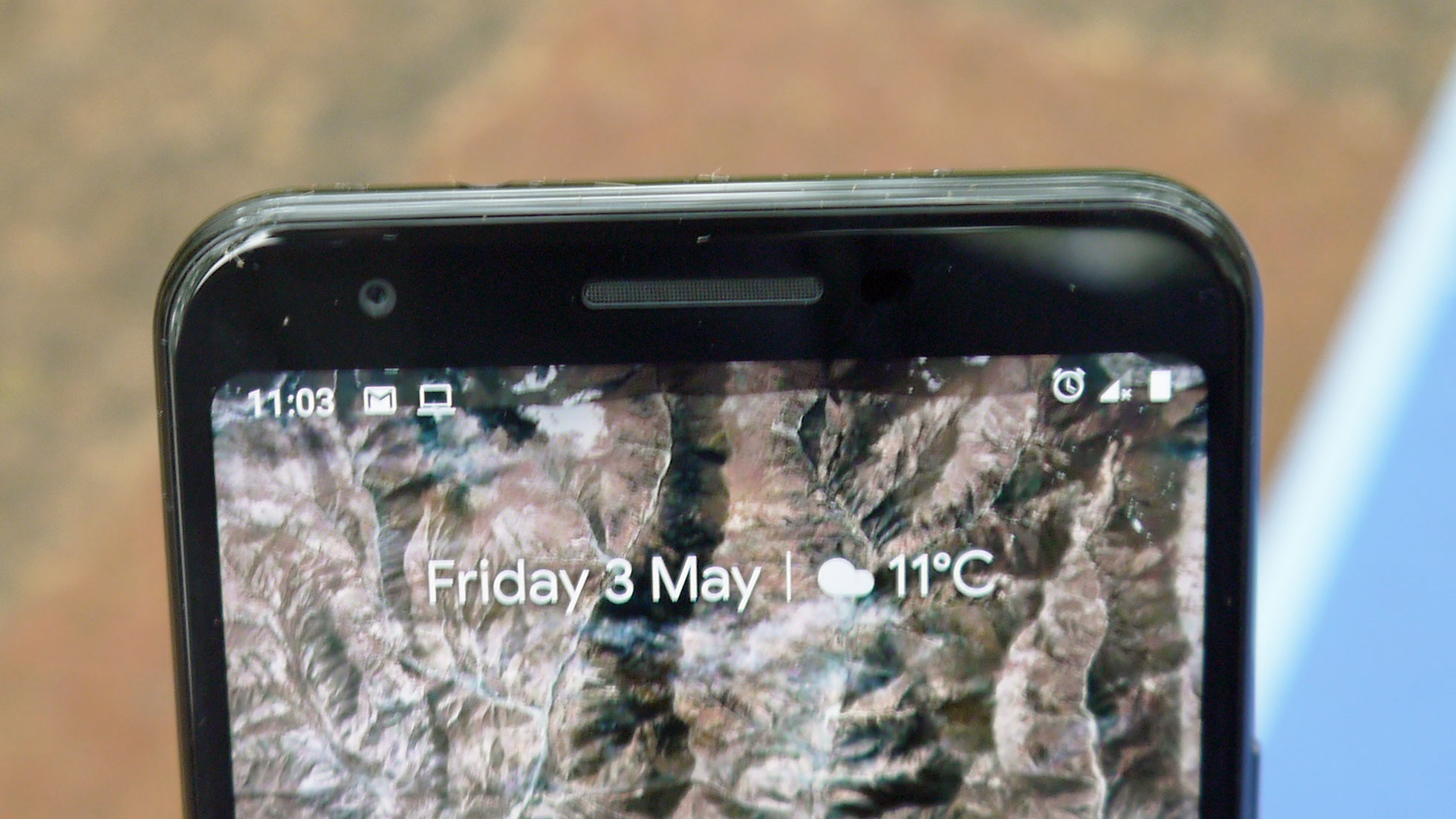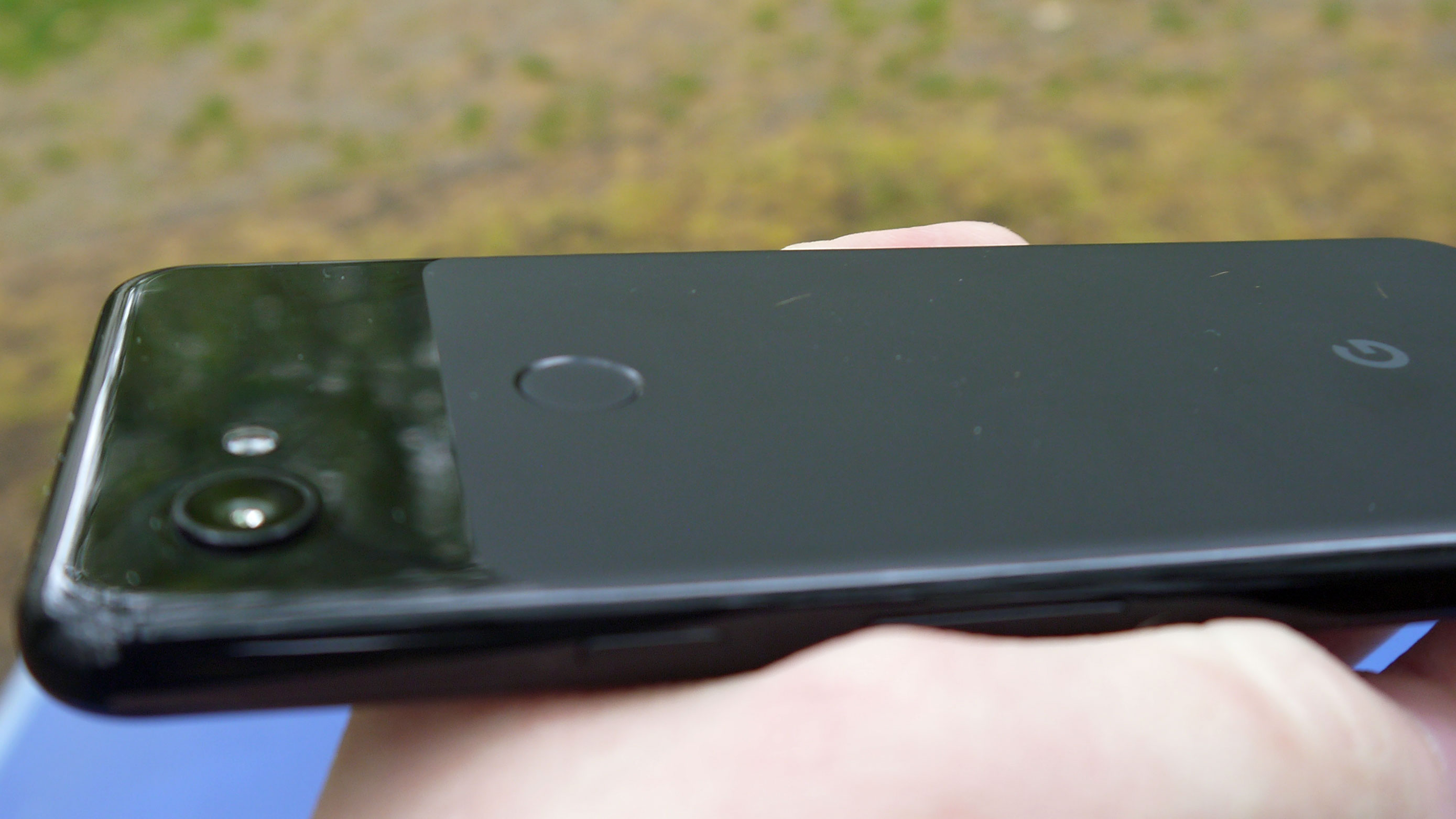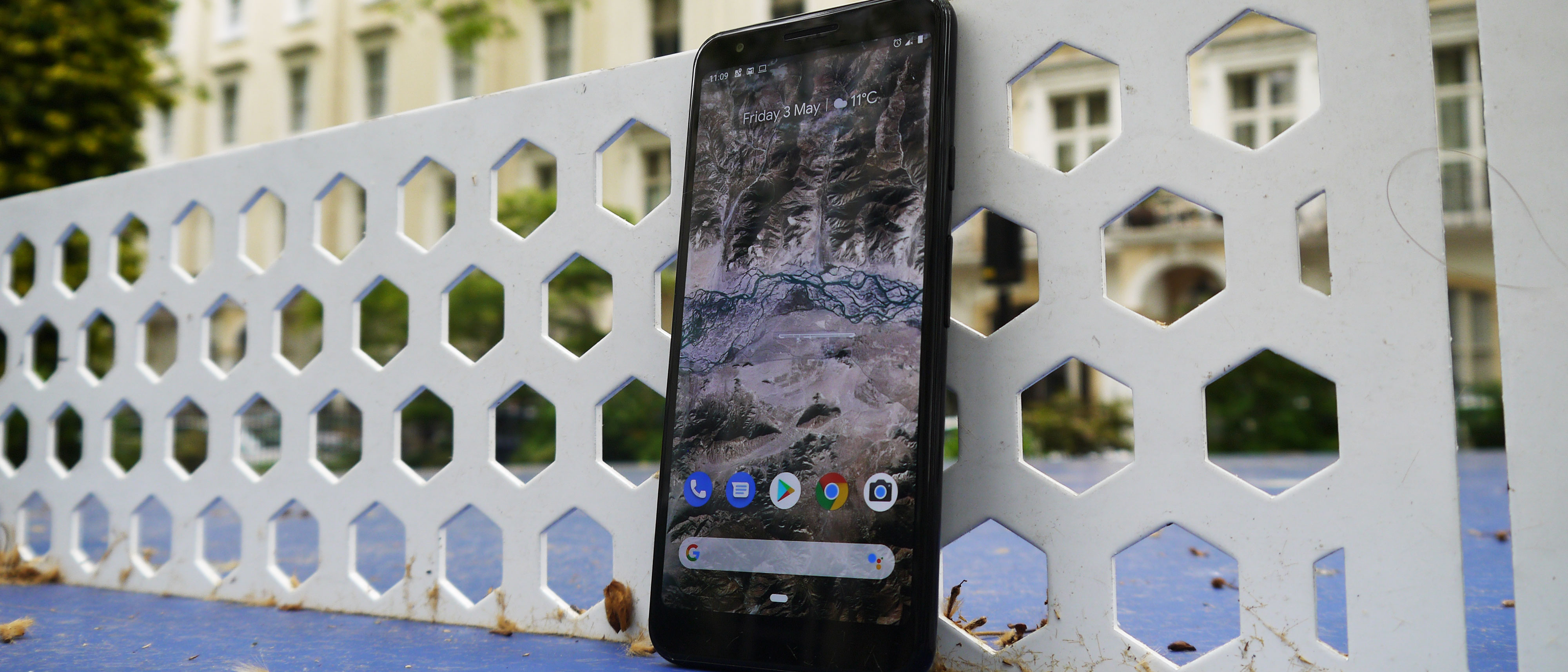Why you can trust TechRadar
Interface and reliability
The Pixel 3a comes with stock Android 9, with its stable of useful features like adaptive brightness, gesture navigation, and adaptive battery. While this is essentially the same OS you’ll get on nearly every new phone at the moment, you’re getting Android in its pure form here, unsullied by any manufacturer overlays.
As this is ‘stock’ Android, apps will be hidden in an app drawer which you can access by swiping up from the bottom of the screen, quick settings and notifications can be found by swiping down from the top of the screen, and swiping up and holding will show you all your recently-opened apps.
The Google Pixel 3a runs on a Snapdragon 670 chipset, which is a noticeable downgrade from the Pixel 3’s Snapdragon 845, and it’s evident when you’re using the phone – the interface feels a little bit slower to navigate, apps take a tiny bit longer to load, and it takes a short while for the phone to spring to life when you put your finger on the fingerprint sensor.
This distinction is only noticeable if you’re comparing the Pixel 3a to other high-end phones, though, and generally the interface is quick enough. Quickly switching between apps, or having lots of apps open at once, does slow the interface down a little, but never to the point where it tanks performance.
One significant benefit of buying a Google Pixel phone is that new updates to Android will roll out faster to the handset, so the Google Pixel 3a will receive Android Q before lots of other handsets.

Movies, music and gaming
With its rather miniature screen, the Google Pixel 3a wouldn’t necessarily be our first choice for a phone to play games or watch movies on, but it actually ran games surprisingly well.
When we played PUBG Mobile, the phone defaulted to the highest graphical settings, and ARK: Survival Evolved ran surprisingly smoothly – while the handset’s Snapdragon 670 chipset is fairly middle of the road, we’d guess the device has been optimized to run these high-end games.
The 5.6-inch display wasn’t ideal for these intense games, however, as our thumbs got in the way quite a bit and obscured the screen.
When Google Stadia launches in November the Pixel 3a will become one of the best smartphones for gaming purely because it'll be one of the phone phones to run the service – at least initially.
Watching films and TV wasn’t the best experience either on the smaller screen, and we often found ourselves longing for the extra half inch or inch a bigger phone would provide. The high-screen resolution was a bonus, though, with streamed content looking high-quality.
The biggest letdown in terms of media on the Pixel 3a is audio quality – music played over the speakers sounded rather tinny, especially at higher volumes, with little bass or clean treble to speak of. This wasn’t so much a problem when listening out for gunshots in a game, or for dialogue in a TV show, but the difference was noticeable when we put on Spotify and tried to use the handset as a loudspeaker around the house.

Performance and benchmarks
Not surprisingly given its mid-range chipset, the Google Pixel 3a returned a middling score in our benchmark tests, with a multi-core result of 5,070.
That’s a perfectly acceptable score – it’s only slightly shy of the iPhone 7, which scored 5,311 – although it’s well short of the original Pixel 3’s score of 8,336, and it won’t hold a candle to current phones that you could get by spending a little more.
Saying that, the processor was adept when it came to playing games, as we’ve already explained, which was a little surprising.
This suggests Google has optimized the processor well – while we did notice a few issues with the performance in normal use, for example when navigating the user interface, as well as longer than expected waits for the camera post-processing software to work on pictures we took, it didn’t ruin our experience with the handset, and again such issues were only really noticeable compared to the Pixel 3.
Current page: Anything else I should know?
Prev Page Camera and battery Next Page Verdict and competition
Tom Bedford joined TechRadar in early 2019 as a staff writer, and left the team as deputy phones editor in late 2022 to work for entertainment site (and TR sister-site) What To Watch. He continues to contribute on a freelance basis for several sections including phones, audio and fitness.
